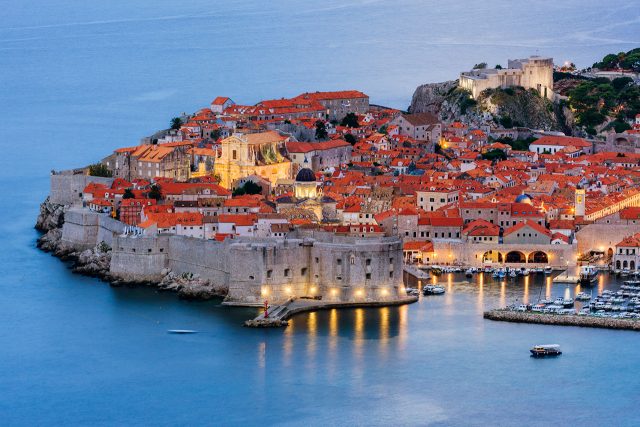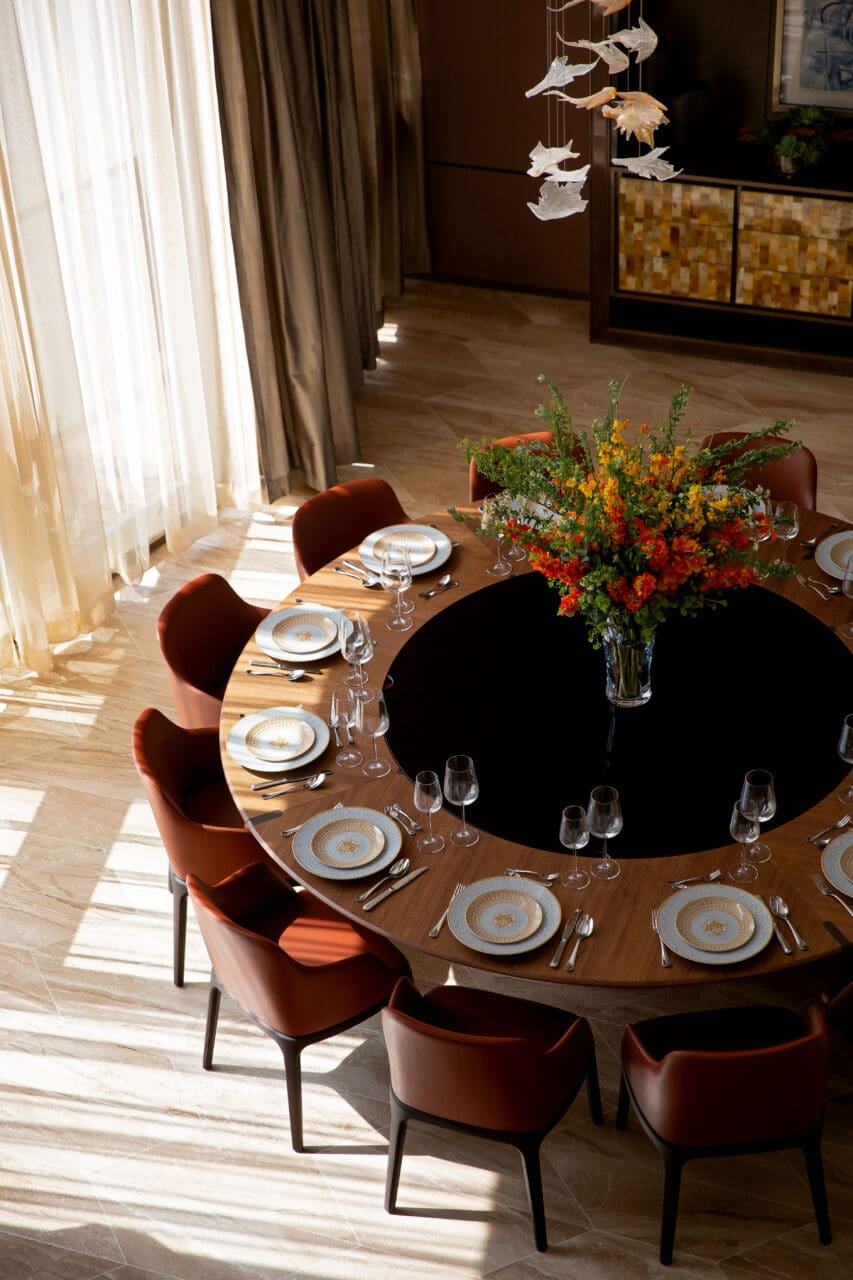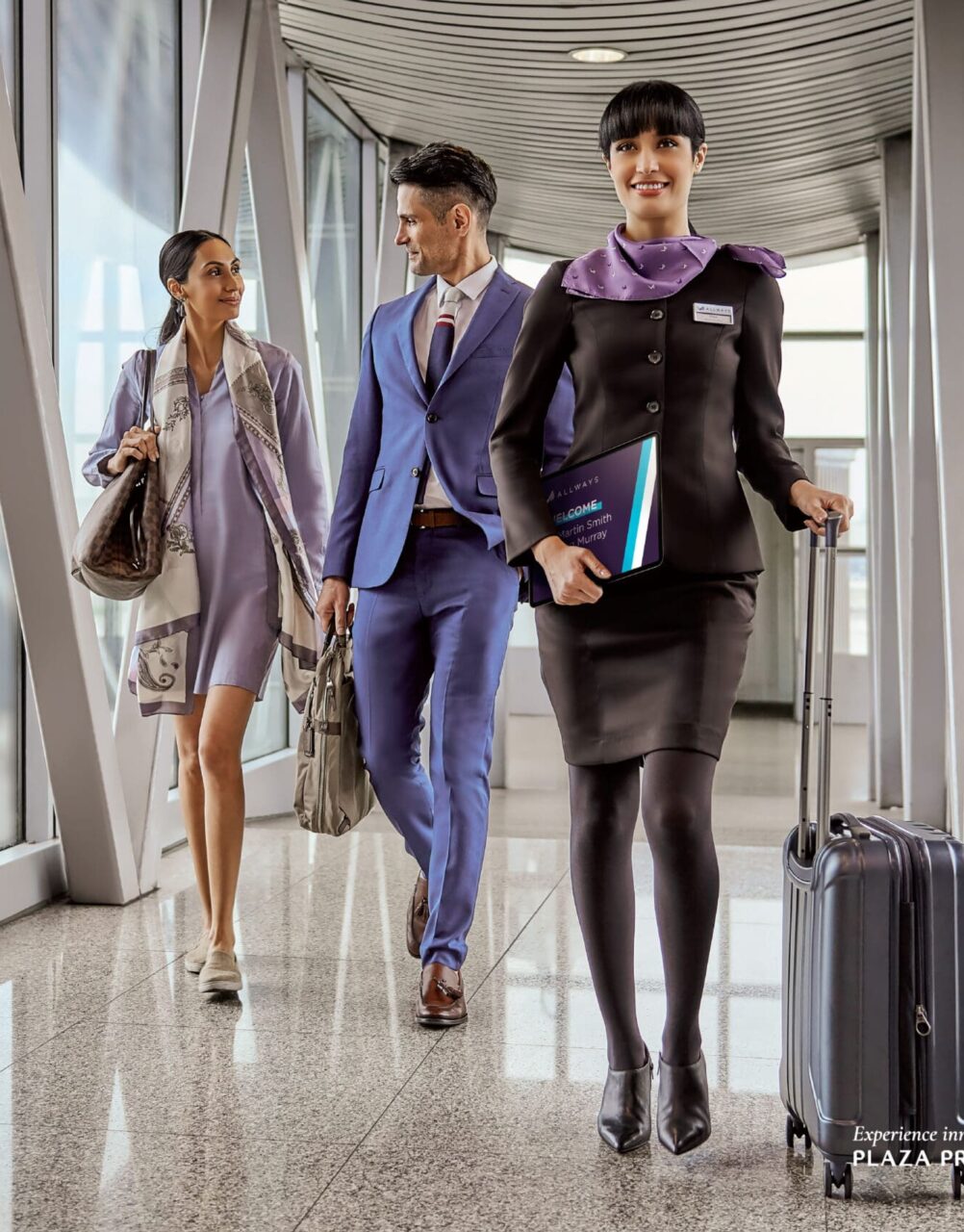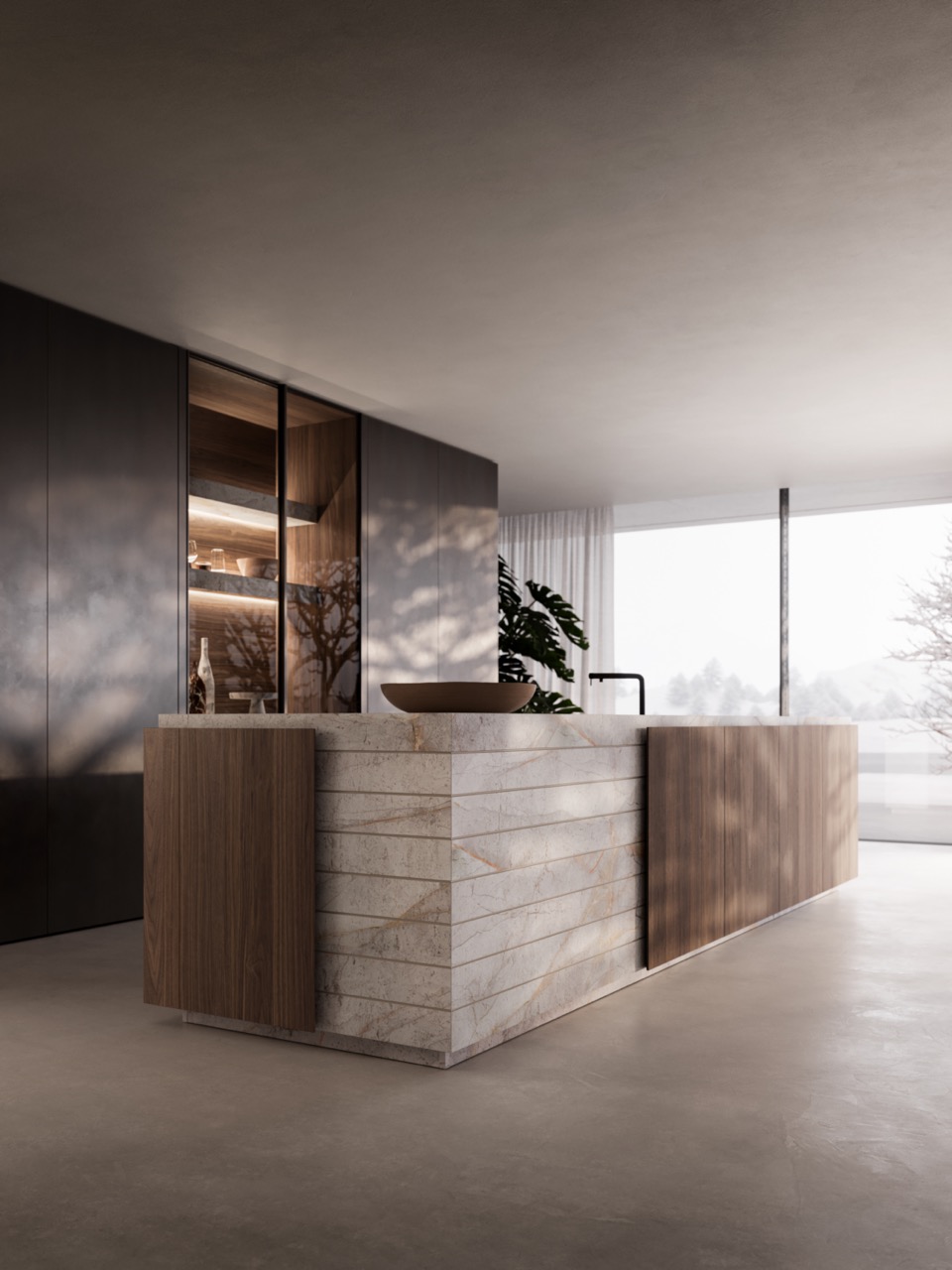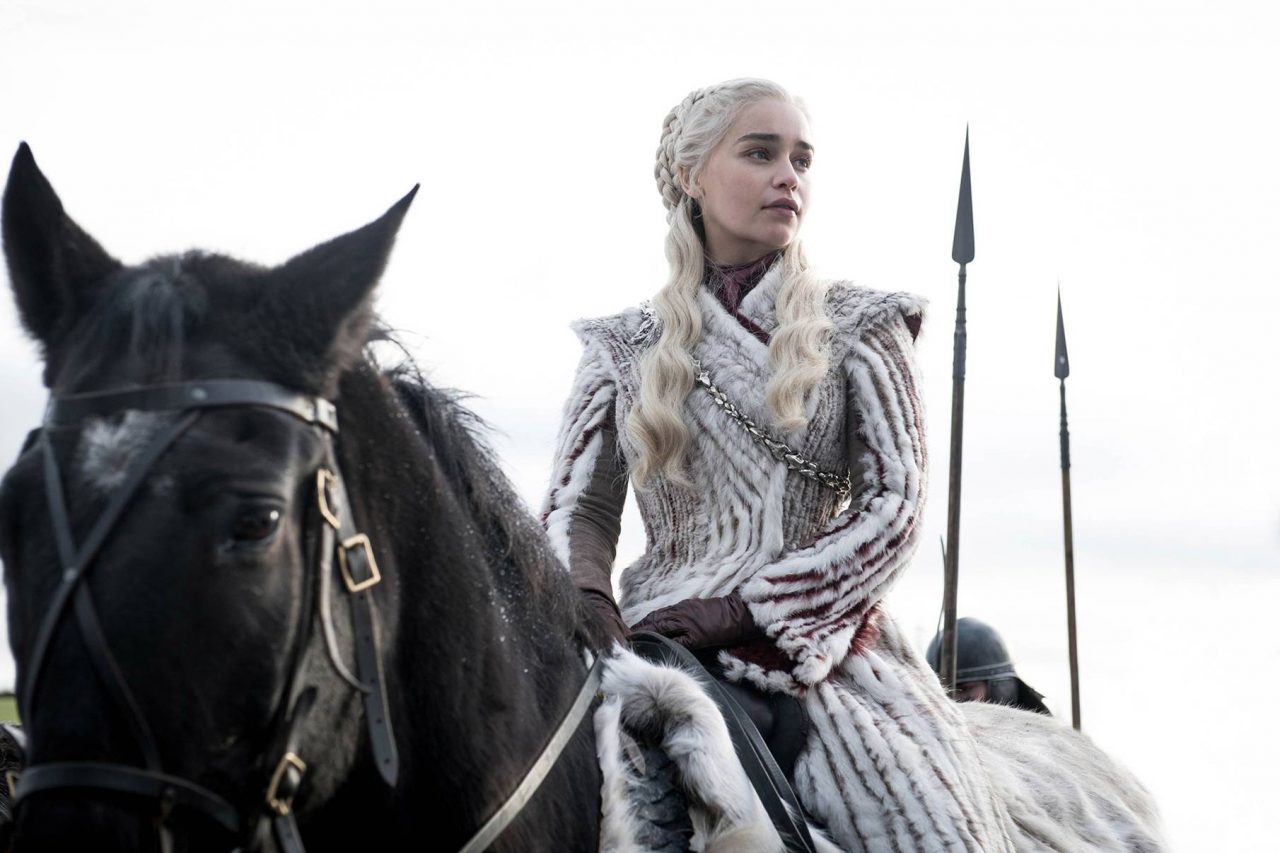
Michele Clapton has been feeling nostalgic lately. The veteran costume designer, who has worked on Game of Thrones since the show’s first season in 2011, is in the early stages of compiling a book about her creations. “It’s exciting but also very daunting,” she tells Vogue. “There are so many looks and trying to be selective is really hard.”
Over the past eight years, her ensembles for HBO’s fantasy epic have included armour-plated ballgowns, dragon-inspired jewellery and IKEA rugs that have been turned into capes for the men of the Night’s Watch – an extraordinary body of work that has earned Clapton four Emmys and countless fans, who pore over every detail of her characters’ wardrobes in search of clues about their fate.
This year, as the show enters its final season, both excitement and speculation have reached fever pitch, and the pressure is on to outdo everything that has come before it. Clapton is certainly up to the challenge: for the first two episodes, titled “Winterfell” and “A Knight of the Seven Kingdoms”, she made a series of costume changes that highlighted the progression of each character.
In the opening scene of “Winterfell”, Emilia Clarke, playing Daenerys Targaryen, wears a spectacular white coat with strips of red coming through the fabric. “It’s similar to a piece she wore in the season seven episode ‘Beyond the Wall’,” explains Clapton. “For that coat, we created the material using strips of faux fur and leather and worked with a pattern cutter who had to lay that fabric onto a corset. It was tricky to construct because we had to make three matching versions for the shoot and Emilia had to be able to straddle a dragon while wearing it.” This new coat is made using the same technique, but moves the narrative forward through the colours used. “Recently, Daenerys has started introducing the Targaryen colours [of red and black] into her wardrobe. Everything is there for a reason, and it will inform what happens next.”
在最後一季,Sansa Stark用上了 Stark家族的標誌性元素—黑色和厚毛皮。Clapton告訴我們他最喜歡為Sansa設計造型。
Photo: HBO
Sophie Turner, as Sansa Stark, has also embraced the sartorial hallmarks of her house, adopting the dark colours and thick pelts of her parents. “She’s the character I’ve most enjoyed dressing throughout the show,” says Clapton. “I like the way she expresses herself through colour and embroidery. We established early on that she makes her own clothes – she tells Cersei that in the first-ever episode of the show – and she has always sent messages through what she wears. She’s learned from the people who were cruel to her and when she gets back to Winterfell in season six, she’s finally in control. I love the idea of her lacing herself into her dress, wrapping belts around her and buckling herself in. She’s protecting herself by closing herself off from the outside world.”
Sophie Turner所飾演的Sana Stark 也第一次換了裙子和大衣,穿上皮革盔甲。
Photo: HBO
This season is also the first in which Turner wears leather armour. “People wear armour in times of danger and I wanted her costume to reflect what’s going on around her,” says the designer. “Daenerys is in Winterfell and it’s obvious that she and Sansa don’t get along particularly well, so it’s partly Sansa reacting to that. But I also wanted to show that she’s a warrior in her own right. I wanted it to evoke strength.” Another symbol of strength has been Sansa’s circular chain necklace, which she has worn in different iterations since season four. For Clapton, it represents Sansa’s emancipation from the chains of her childhood in King’s Landing – a heavy amulet that is a far cry from the delicate dragonfly necklaces she wore in the earliest episodes. “There’s something about this piece of jewellery that feels so powerful,” she says. “The original disk is a black stone I had made in New Zealand, and I love the fact that it comes from the earth and feels so substantial.”
Bespoke jewellery has always been a crucial component of the designer’s work, from Daenerys’s dragon chain made in collaboration with London brand Yunus & Eliza to the iron bracelets and rings created by sculptor Gloria Carlos. Clapton’s favourite piece is Cersei Lannister’s coronation crown from the season six finale “The Winds of Winter”, which the character continues to wear this season. “The crown shows the Lannister lionhead, but it’s pared down to just a few strokes,” she says. That episode also marked a shift in Cersei’s character. “Now that she is queen, she no longer needs to use her sexuality as power. She wears black because she’s mourning her children, but the fabric of that coronation costume is similar to one her father used to wear. That look was an homage to him, but also defying him because he didn’t think women should be on the throne.”
Cersei Lannister的加冕皇冠是Clapton最喜愛的作品,首次亮相於第六季的結局。
Photo: HBO
For Cersei’s most recent looks, Clapton referenced the costume she created for last season’s finale “The Dragon and the Wolf”: a black felt coat with jagged detailing along the spine. “I wanted to take that motif through into this season,” she explains, pointing to Cersei’s scaled doublet and golden shoulder pads. “There’s something twisted and reptilian about that metalwork that makes her look untrustworthy. This season, there’s less pattern and more studding on her dresses to show that she’s protecting herself and feeling more threatened. I also wanted to get those deep Lannister reds back in. She’s still in mourning, but the red is slowly coming to the surface.”
Clapton告訴Vogue,Arya Stark的衣服反映出他是一名戰士,必須「隨時作戰」。
Photo: HBO
While Cersei’s looks are the most intricate, some of the pieces Clapton most enjoyed designing for the final season belong to Arya Stark, played by Maisie Williams. In the first two episodes, she wears a slashed cloak with grey quilting. “I love the asymmetry of it,” says Clapton. “Arya is a warrior and needs to be able to fight at any moment. When I was sketching this look, it made sense.” Could the unusual cut of the cloak hold a clue to her future? “The costume reflects her father with the cut of the padding, the skirts and the colouring,” she replies. “But I also didn’t want Arya to wear the big pelts that Jon, Sansa and Bran have. I didn’t want her to look like too much of a Stark, because she really isn’t anymore. Sansa in her costume almost represents Winterfell, but Arya looks as if she’s passing through. Whether or not that’s the case, we just don’t know yet.”
This level of detail is afforded to all of the ensembles in the eighth season, particularly for characters who have come north for the first time. Daenerys’s army of Unsullied, for instance, wear padded suits under their armour while the Dothraki remain true to their nomadic nature. “They have always taken what they needed and created new textiles,” says Clapton. “So when they fought and killed the Lannisters, they stole their jackets and incorporated them into their own clothing. They also do a lot of weaving, so when they hunt for food in the north they take pelts. They provide for themselves, whereas the Unsullied are provided for.”
Clapton考慮到角色會首次前往北方,例如Dothraki和Daenery的Unsullied軍隊。
Photo: HBO
Although she can’t say more about the costumes in the final four episodes, the best is yet to come – especially because this will be Clapton’s last time designing for the Game of Thrones universe. “Some of our teams will be working on the prequel, but I won’t,” she says. “It’s nice to arrive at the end of something I started almost a decade ago.” All the more reason, then, to go out with a bang.
This article was originally published on British Vogue.
Editor
Gavin Yeung